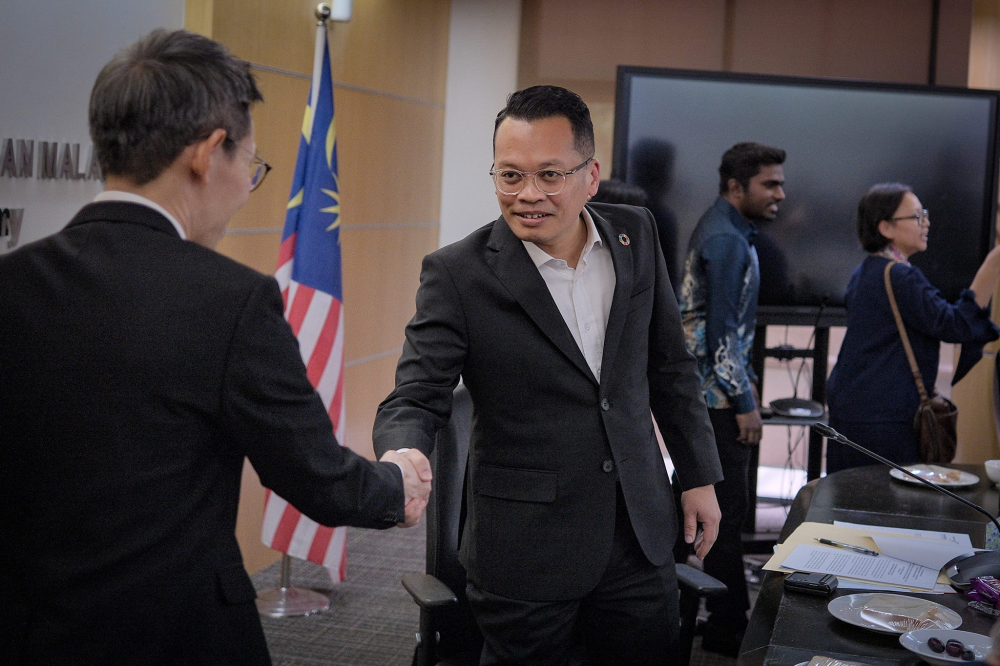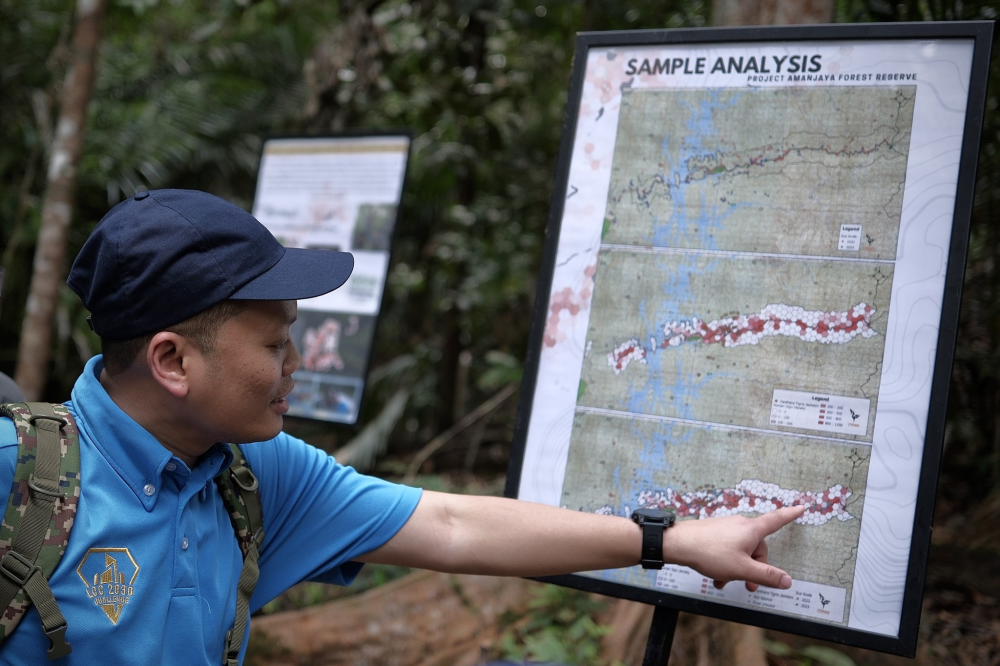Green Leadership: Nik Nazmi's first year driving Malaysia's environmental agenda
USHAR DANIELE
SHAH ALAM - In his first year as the Natural Resources, Environment, and Climate Change (NRECC) Minister, Nik Nazmi Nik Ahmad, under the Madani government, has demonstrated his commitment to environmental stewardship. He has taken charge of numerous policies and initiatives related to environmental conservation, energy efficiency, and climate change mitigation.
During Malaysia's energy transition roadmap debut at the United Nations 28th Conference of Parties, Nik Nazmi received praise from experts for his efforts, showcasing Malaysia's commitment to addressing climate change and steering the country in the right direction.
However, he has faced criticism from environmentalists, particularly when he announced in a parliamentary response that the proposal for the Transboundary Haze Act was dropped.
This decision raised concerns, especially considering the annual haze season that affects both Malaysians and Singaporeans. Singapore, in 2014, became the first Asean member to criminalise transboundary haze production.
Despite the initial proposal setback, Nik Nazmi clarified that the government was not abandoning the idea entirely but rather exploring a diplomatic approach to address the issue.

In October, Nik Nazmi opposed the Kelantan state government's decision to amend its development plans, particularly concerning the classification of environmentally sensitive areas (ESA). He emphasised that these changes would impact the federal government's policy of maintaining 50 per cent forested areas in the Peninsular.
The state's decision not to consider permanent forest reserves as ESA, unless they serve as water sources or catchment areas, faced strong opposition from the minister.
RimbaWatch, a climate watchdog, expressed concerns that if the plan were approved, 88 percent of permanent forest reserve areas in Kelantan would no longer be classified under ESA. This would include national parks protected since 1939.
Despite these challenges, the government has made significant pledges to demonstrate climate initiative.
In May, it announced a commitment to accelerate Malaysia's renewable energy power installed capacity by 70 per cent from the existing 25 per cent by 2050.
NRECC estimates that Malaysia needs USD$85 billion to adapt to climate change in the next 50 years, with renewable energy playing a pivotal role in reducing carbon emissions.
While the total investments required for reaching net-zero emissions are still under study, an estimated RM637 billion in new investments in renewable energy is anticipated.
While there is wiggle room for Nik Nazmi to implement various initiatives under the climate agenda, the roads paved ahead are not going to be easy.
List of initiatives under the NRECC and its possible timelines:
- Energy Efficiency and Conservation Bill: The bill was passed by Dewan Rakyat in October 2023 to regulate efficient consumption and conserve energy in the country. This bill will further strengthen the legal framework that is related to energy efficiency and conservation practices which can ensure full involvement at all levels.
- The National Carbon Policy: This policy is expected to be ready for implementation this year where it aims to provide guidance on carbon trading at state levels.
- The Climate Change Act: The act was mooted in 2018 by former NRECC minister Yeo Bee Yin and has come to light again as the ministry is currently developing policies to effectively mitigate and adapt to climate change. This will take two to three years to formulate.
- Framework for renewable energy export: In October 2021, Malaysia banned the export of renewable energy but it was reversed in May this year. Economy Minister Rafizi Ramli, in a joint press conference with Nik Nazmi said the move to lift the ban would benefit renewable energy businesses based in Malaysia. The framework aims to improve the nation’s policy on the green economy.
- National Energy Transition Roadmap (NETR): A strategic plan that will facilitate the country’s transition to a more sustainable and environmentally friendly energy source while transitioning into a low-carbon economy. The roadmap will also help Malaysia realise its net-zero greenhouse gas emissions by 2050. The NETR is expected to drive investment of RM435 billion to RM1.85 trillion into the economy by 2050. Lights up the path to Malaysia realising its net zero aspirations through via clean, renewable energy
- Low Carbon Mobility Blueprint (LCMB): Nik Nazmi mentioned the LCMB during a session on the National Renewable Energy and Energy Efficiency Act 2024, stating that it will continue and complement the execution of NETR and the National Automotive Policy.
- Long-Term Low Emission Development Pathway (LT-LEDS): The LT-LEDS is a policy tool that helps countries transition to a low-carbon, resilient economy and the pathway is expected to be ready by early 2024. In the mid-term review of the 12th Malaysia Plan, the report said LT-LEDS and a NDC roadmap will be developed to enhance mechanisms for climate action.
- Rare earth mining framework: NRECC is developing a national framework for sustainable rare earth mining which promotes responsible mining practice. The standard operating procedure for mining non-radioactive rare elements was approved by the cabinet with a pilot project of mining activities located in Perak.
Download Sinar Daily application.Click Here!














